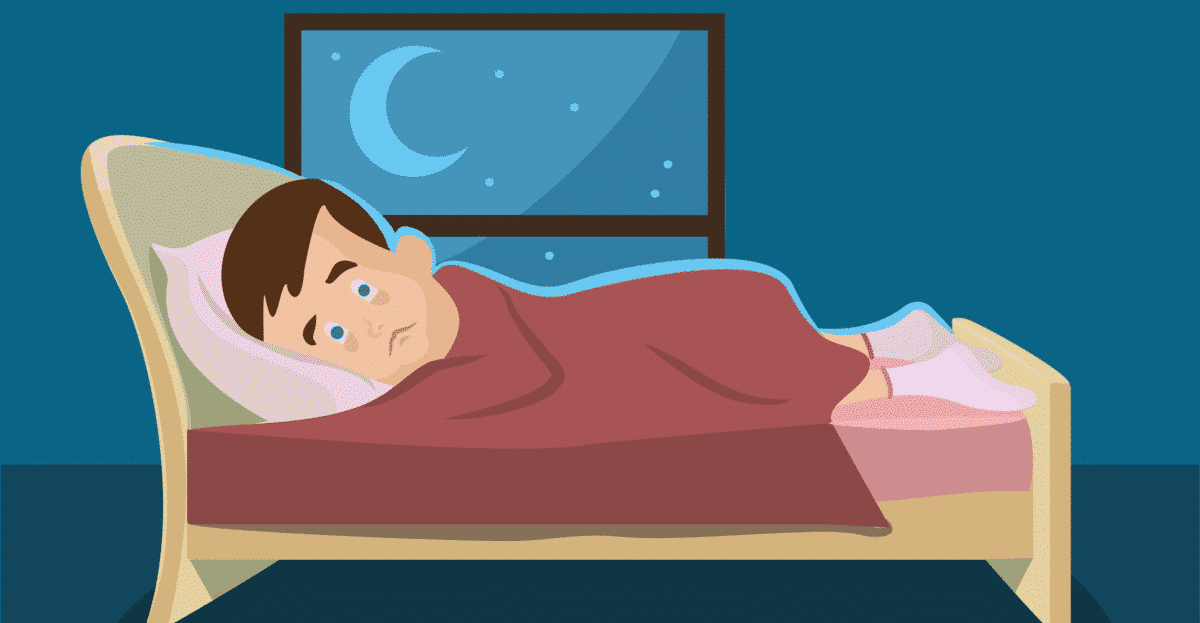Antidepressants and Insomnia

Depression is a severe mental disorder that’s becoming common across the world. While it’s frequent occurrence would be expected to prompt immediate and strong action to mitigate effects and manage the condition, depression continues to negatively affect quality of life, the ability to work, and it’s also the reason for the increase in suicide risk. And as all these things go on, the treatment options available for depression are not satisfactory and even when treatment is prescribed, the side effects of the medications prescribed aren’t well addressed.
One of the biggest side effects of taking antidepressants is insomnia and other sleep-related problems. Most of the patients with depression continue to struggle with sleep disruptions which affect sleep continuity. The common sleep issues include, sleep onset, sleep time, waking after sleep onset, sleep efficiency, as well as the effect of antidepressants on the stages of sleep.
For example, the early morning awakening/ sleep disruption and the alteration in the distribution of REM sleep are regarded as biological markers for circadian rhythm disturbance, something common with depression – these events are also characteristic markers for depression and are characterized with melancholy, a common feature in patients with depression.
The use of antidepressants, though helpful with most of the effects of depression, seems to be a double-edged sword.
Antidepressants and sleep disruption
The antidepressants that cause a deterioration in the quality of sleep are the ones that cause the activation of the serotonergic receptors, and the increase in dopaminergic and noradrenergic neurotransmission. These antidepressants include the most prominent category of antidepressants – the SNRIs (serotonin and norepinephrine reuptake inhibitors), SSRIs (selective serotonin reuptake inhibitors), NRIs (norepinephrine reuptake inhibitors), TCAs (activating tricyclic antidepressants), and the MAOIs (monoamine oxidase inhibitors).
On the other hand, there are antidepressants that actually improve sleep in patients. These include the sedating TCAs, mianserine, mirtazapine, as well as antidepressants like trazodone and nefazodone known for their ability to improve sleep quality. These medications have significant effects and sleep improvement is evident after the first dose.
Therefore, it’s clear that treatment with the right medication could go a long way in helping persons dealing with depression curb insomnia and sleep better.
Treating insomnia with antidepressants
Antidepressants are effective in the treatment of clinical depression and there’s ongoing research on the relationship between insomnia and depression. However, it’s become apparent over the years that many clinicians prescribe antidepressant to people struggling with poor sleep instead of prescribing sleeping pills. Their argument is based on the fact that the antidepressants that promote sleep are lower habit-forming effects than the sleeping pills meaning that the antidepressants could be taken for longer. Also, the antidepressants have a lower potential for harmful side effects than the sleeping pills.
The catch, however, is that all antidepressants do not affect sleep in the same way, as mentioned above. The sleep improvement (worsened disruption) effects depend on the type of antidepressants prescribed.
How do antidepressants work to improve sleep?
For the antidepressants that improve sleep, it’s important to mention that these antidepressants work by suppressing REM sleep while also increasing the time it takes for you to enter the REM sleep stage. In patients with depression, there is an increase in the REM sleep density and the reduction of sleep latency. The right antidepressants negate these effects.
It should be noted that where the antidepressant used is effective, patient report an improvement in mood, accompanied by better sleep.
Antidepressant Withdrawals
Despite the effectiveness of the SARIs (serotonin antagonist and reuptake inhibitors) like trazadone in sleep improvement and in treatment of insomnia, patients are discouraged from stopping the antidepressants suddenly because of a condition called antidepressant withdrawal.
Antidepressant withdrawal is common in patients who stop taking antidepressants suddenly after being on the medication for at least six weeks.
Even though you feel better than ever and you can’t remember the last time you felt that good, you should never go cold turkey on your antidepressants. Sudden withdrawal comes with several unwanted side effects because it throws your brain into an imbalanced state which could worsen how you feel.
The withdrawal comes with physical and psychological effects hence the use of the term Discontinuation Syndrome by medical professionals.
The withdrawal symptoms include:
- Fever
- Headache
- Ataxia
- Anxiety
- Panic attacks
- Nausea
- Tremors
- Lightheadedness
- Hallucinations
- Diarrhea
- Confusion
- Vivid dreams
- You could also experience a brain zap when you quit antidepressants.
In worst-case scenarios, abrupt discontinuation of antidepressants could cause rebound depression and in some cases, the symptoms of the rebound are stronger than the symptoms of the previous depressive episode. But the good news is that rebound depression is only a symptom of the withdrawal and it should fade away.
However, to differentiate between a withdrawal symptom and the return of depression, you should consult your doctor.
So, there you have it – if you have to take antidepressants, it’s better taking the ones that will not affect your sleep, especially if you struggle with insomnia.



